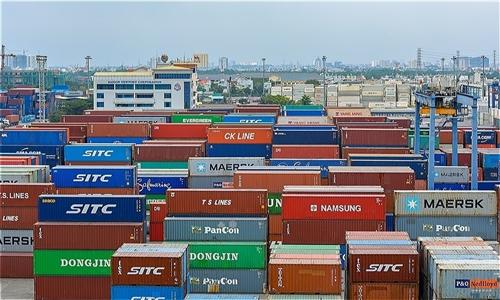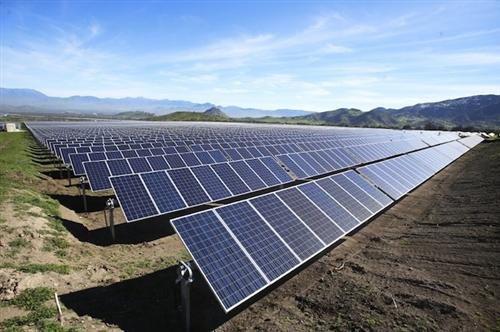New basis for energy sustainability
New basis for energy sustainability
How significant is Resolution 55 in Vietnam’s current standing?

Minister of Industry and Trade Tran Tuan
|
The resolution holds great significance. Its enactment comes at the right time as this year is the final year in implementing Vietnam’s five-year socio-economic development plan and 10-year development strategy, as well as shaping the direction of the country’s development strategy in the next decade.
This period also marks Vietnam’s far-reaching efforts to broaden its engagement in the global economy. Vietnam has shifted from an underdeveloped into a developing country.
Amid robust development of diverse economic sectors, including industry, the country has become increasingly dependent on imported energy, while our primary energy sources increased sharply.
In this context, the country must work on a new energy plan, embedded in the national socio-economic development strategy, to lay out suitable policies and measures, thereby ensuring the sustainability of not only national energy security, but also other factors like national security and geopolitics.
In addition, the new strategy comes at a time when Vietnam’s development level is being heightened. Meanwhile, the current regulatory framework has exposed some limitations that hinder the energy sector development, energy security, and Vietnam’s sustainable development.
Above all else, there must be novel orientations that align with global proceedings to craft the country’s development journey.
Promoting engagement of the private sector into energy development is one highlight in Resolution 55. Based on its actual contributions to the power sector’s development in the past years, what is the role of the private sector?
Private investors and businesses have had impressive results in the energy sector’s development. For instance, up to 28 per cent of total power production comes from the private sector via diverse investment formats such as build-operate-transfer or independent power purchase contracts. The enactment of several new schemes and policies, such as new pricing schemes for solar and wind power, attests to the tremendous potential of the private sector in the development of Vietnam’s power sector.
As well as underlining important orientations, principles, and targets to remove barriers, the new resolution facilitates participation of all economic sectors, particularly the private one, into taking advantage of the country’s potential fields and areas, especially the local energy sector.
The resolution also clearly sets forth orientations for national sustainable energy development, focusing on developing suitable and diversified energy sources.
Alongside this, Resolution 55 highlights the balanced development of power sources, ensuring rational use and exploitation of local primary fossil energy sources, while giving further priority to renewable and gas-fired energy sources.
Significantly, the resolution stresses the need to further consider the establishment of renewable energy centres in suitable locations, ensuring that these centres leverage the benefits of technology, geographical position, and local potential.
Accelerating the equitisation and restructuring of state-owned enterprises in the energy field aims to attract private sector engagement. How is this working at present and in the near future?
In recent times, large state energy businesses like PetroVietnam, Electricity of Vietnam, and Vinacomin are living up to their role in the energy development drive. These groups have taken the initiative in the restructuring process, helping to ensure production and business efficiency and essential energy infrastructure for the country. Restructuring these business groups remains a big policy and a thorough target of the energy sector. Vietnam has been taking rational steps in restructuring the power sector, giving birth to a competitive power generation market and a competitive power wholesale market, laying the groundwork to formulate a competitive power retail market.
Power companies shall be gradually equitised, creating a transparent and competitive power market to benefit businesses across the board and local people alike. This also helps constitute a platform of smoothly-driven rules of the market economy, ensuring the effective performance of businesses from assorted economic sectors. In fact, many impediments have persisted during the equitisation of state corporations and groups in the past years. Efforts are being made to gradually perfect the regulatory framework.
Resolution 55, therefore, is expected to help push up state-owned enterprise equitisation and restructuring, and build the groundwork for effective operation of a competitive power market at present and in the future.



























